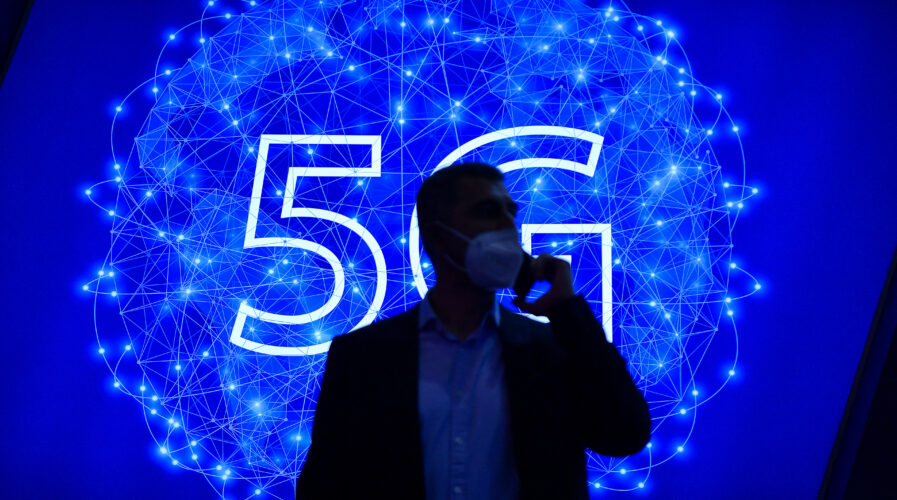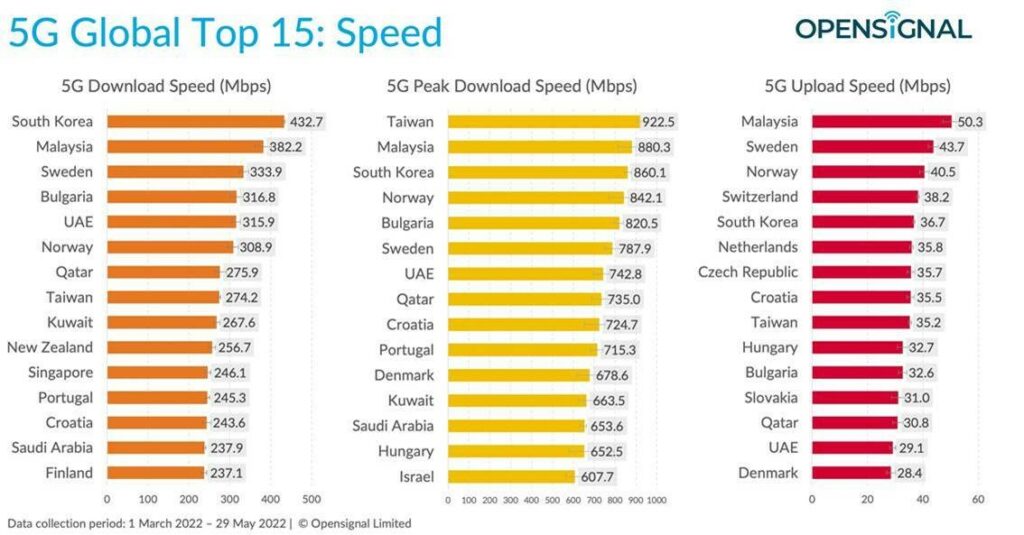
(Photo by Pau BARRENA / AFP)
Despite controversies, Malaysia ranks highly in global 5G speed categories
5G in Malaysia has been facing some controversies in its deployment over the last several months. The main problem being the four major mobile network operators (MNOs) in the country are seemingly not pleased with the deployment methods for the network.
Despite this, Digital Nasional Berhad (DNB), the government body tasked with deploying the 5G network, has been working with other telco companies, namely YES and TM, in getting launching the network. And true enough, YES became the first mobile network operator to offer 5G network and services in the country to the public.
While the MNOs have till the end of June to decide on their approach to 5G, the current network that has been deployed has shown significant results in ranking over three 5G speed categories globally. Deployed by DNB and Ericsson via a single wholesale network, 5G is still relatively in its infancy stages in the country with very new users.
According to Opensignal’s new insight that analyses the 5G worldwide leaders, there are many new entrants in the top 15 markets across different measures of 5G mobile network experience compared with the last 5G benchmark in March. Interestingly enough, Malaysia scores high rankings in all three 5G speed categories, as well as 5G Games Experience.
While Singapore has become a global top 15 market for 5G Download Speed, Malaysia comes in second place out of the 15 countries tested globally. Malaysia is also placed second for 5G peak download, trailing Taiwan closely. For 5G upload speeds, Malaysia ranked top out of 15 countries which included South Korea, Taiwan as well as other European, and Arab nations.

(Source – Opensignal)
For Ian Fogg, Lead Analyst at Opensignal, “It’s not all change in global 5G leadership. South Korea continues to top the global leaderboard with the highest average 5G Download Speed (432.7 Mbps) again and also holding on to the top 5G Games Experience slot (89.6). Impressively for such a large geography, the USA continues to rank very highly on both 5G Availability (25.2%) — the time users spend connected to 5G — and on 5G Reach (6.0), which quantifies the proportion of locations where users saw 5G service.”
When it comes to the 5G gaming experience, South Korea also has a commanding lead with a score of 89.6, over four points ahead of Singapore’s score of 85.3. Fogg added that notably, this is the only experiential category where Malaysia features in the table highlighting the importance of end-to-end experience for video streaming, multiplayer mobile gaming, and voice communications.
For now, Malaysia’s 5G wholesale network only covers the access network, essentially the cell towers, and Malaysia’s operators continue to use their existing core networks and peering to enable the complete experience for users.
Meanwhile, Opensignal also pointed out that the Philippines has seen the highest improvement in uplift for video experience with a 79% increase in mobile video streaming experience with 5G compared with 4G. Chile (64% uplift), Thailand (64%), and Indonesia (61%) complete the top five markets, alongside Malaysia.
The Czech Republic and South Korea swap places for a 5G voice app experience while Singapore and Indonesia jump into the table. Indonesia with a strong 83.2 score which is extremely close to being the highest global score. While Switzerland ranked in the top fifteen for both 5G Video Experience (80.9) and 5G Games Experience, it missed out on a top slot for 5G Voice App Experience.
“Again, as we saw with the terms LTE Advanced and LTE Advanced Pro in the second phase of the 4G era we will likely see vendors and operators market these enhanced versions of 5G using the phrase 5G Advanced. However, the most important test will continue to be the extent to which these new flavors of 5G improve — or actually advance — the real-world experience of users. Opensignal will continue to analyze 5G using a single independent global methodology that enables straightforward comparisons of 5G’s benefits,” added Fogg.
READ MORE
- Ethical AI: The renewed importance of safeguarding data and customer privacy in Generative AI applications
- How Japan balances AI-driven opportunities with cybersecurity needs
- Deploying SASE: Benchmarking your approach
- Insurance everywhere all at once: the digital transformation of the APAC insurance industry
- Google parent Alphabet eyes HubSpot: A potential acquisition shaping the future of CRM


